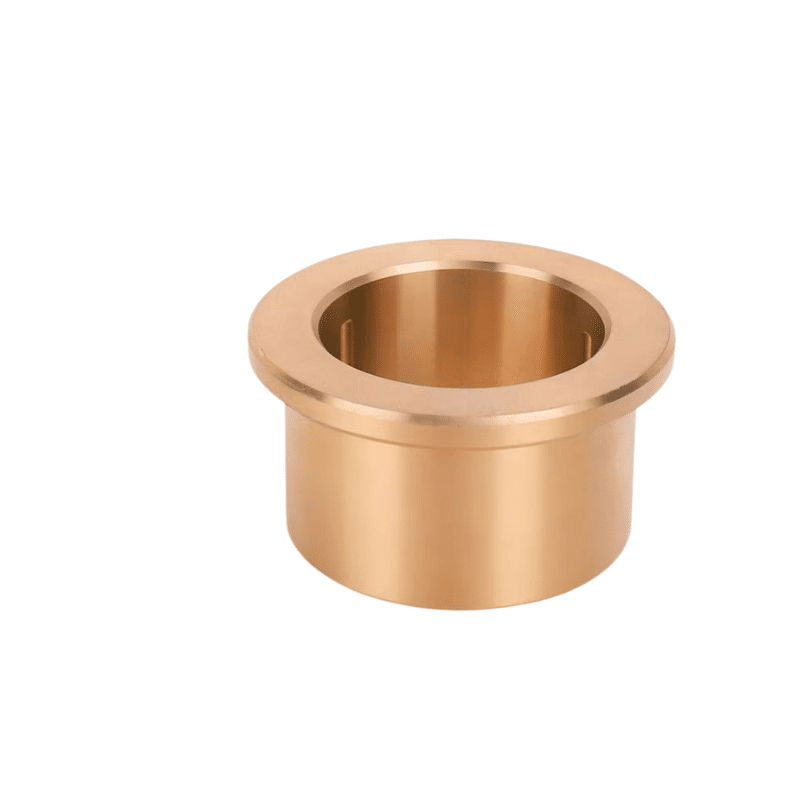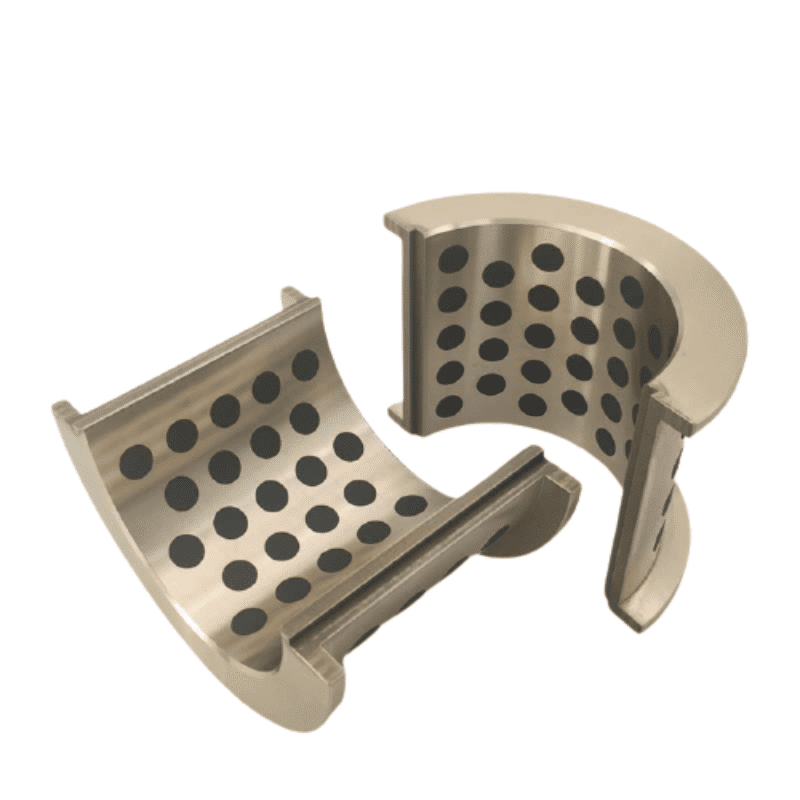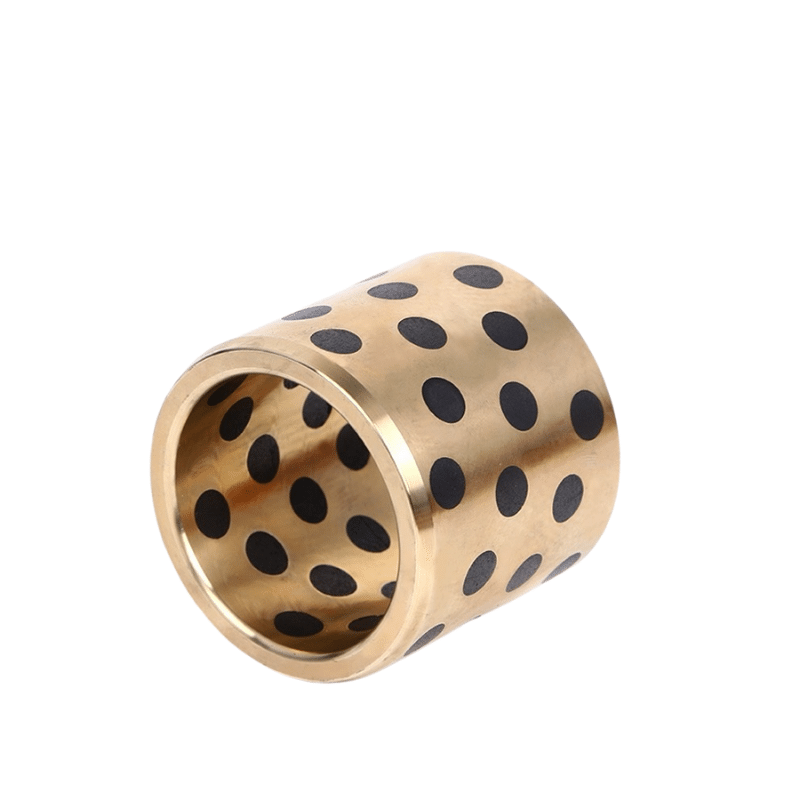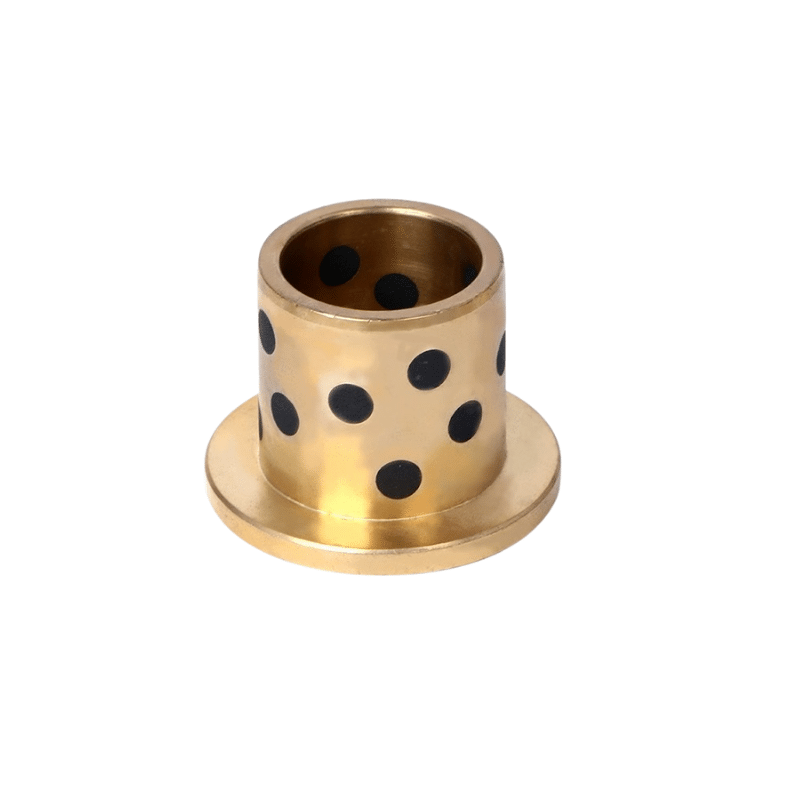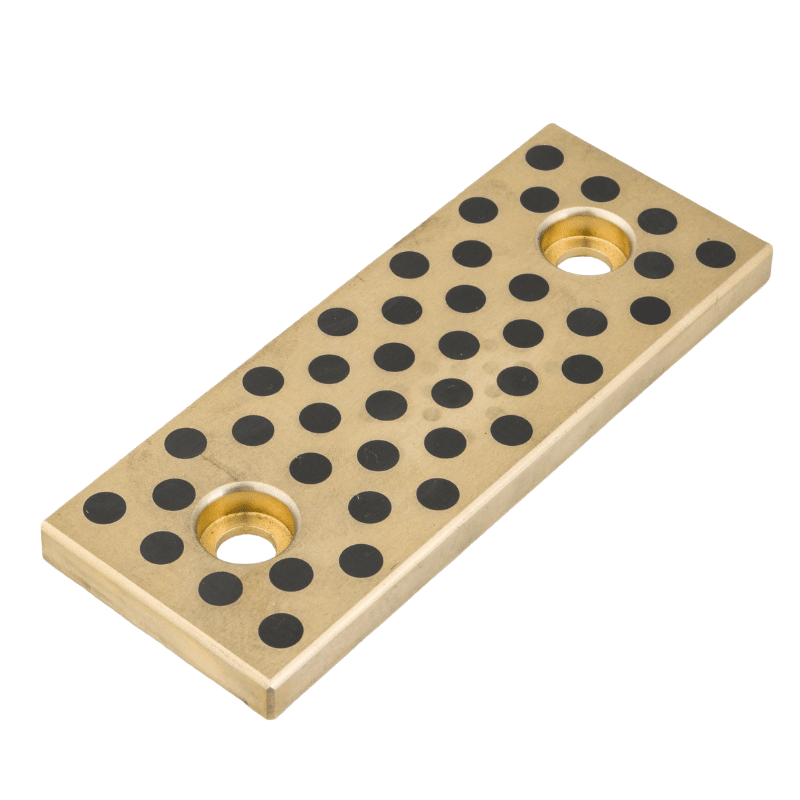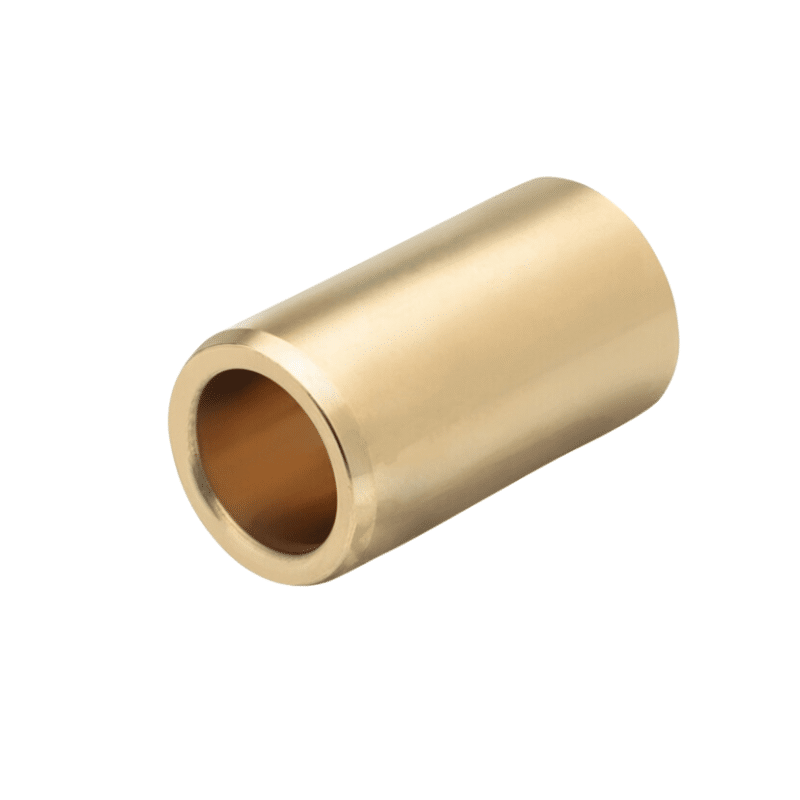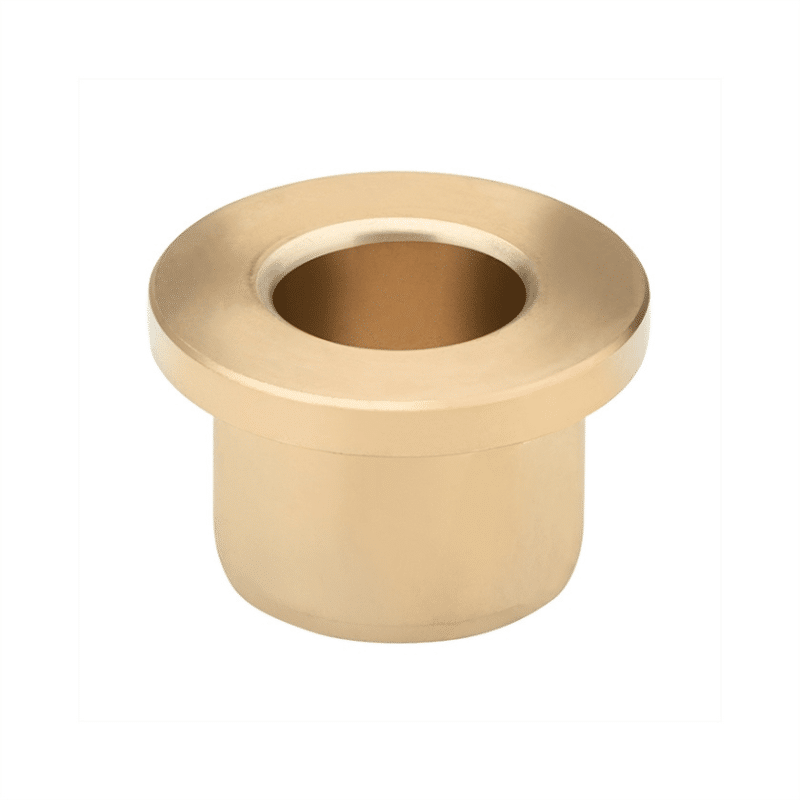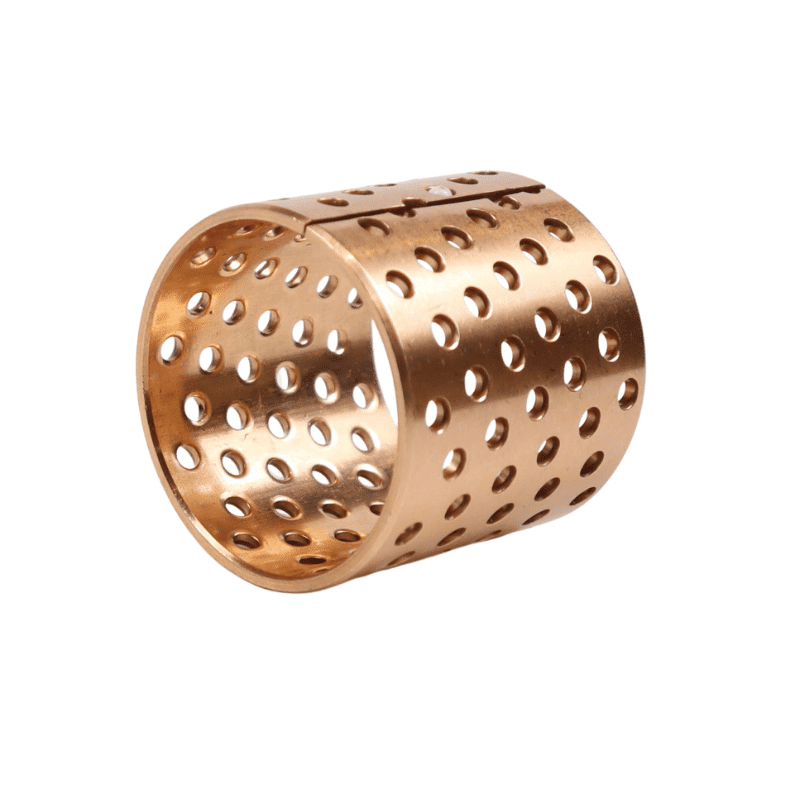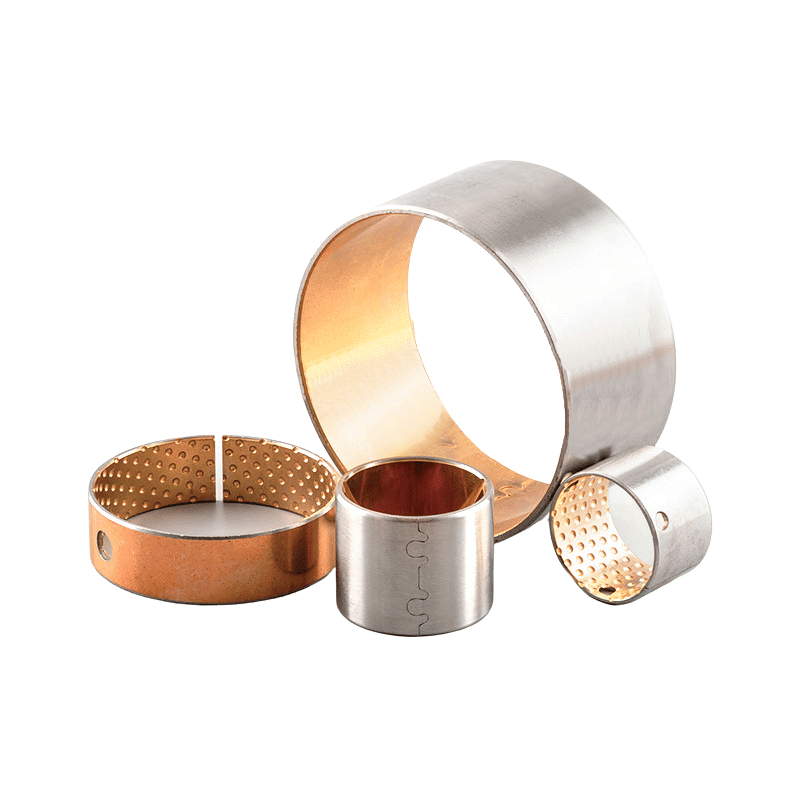C93700 Bronze Bearing
C93700 Bronze Bearing
Say goodbye to the hassle of frequent lubrication maintenance. Our self-lubricating technology ensures smooth operation and reduces wear and tear, extending the lifespan of your equipment. Experience uninterrupted productivity and cost savings as you bid farewell to the need for messy lubricants and time-consuming upkeep.
Manufacturing on Demand, alternative solutions
C93700 Bronze Bearing
C93700 Alloy, C937 High-Leaded Tin Bronze Bushes
The C93700 Alloy, also known as C937 High-Leaded Tin Bronze or C93700 High-Leaded Tin Bronze Alloy, is exceptionally well-suited for bearing uses in situations where the lubrication boundary might be compromised.
The Solid Bronze Bearing C93700, known by various names such as CuPb10Sn, CuSn10Pb10, CC495K, LB2, G-SnPbBz10, and G-CuPb10Sn, is a type of bronze bushing. It is made from C93700 High Leaded Tin Bronze, a material provided by SINOBRONZE. C93700 is the specific alloy used in this product.
C93700 bronze bearing, also known as SAE 64 bearing bronze, is a high-leaded tin bronze alloy used for various bearing applications.
The Advantages of Large Bronze Bushing with Graphite: Full Split Flange Bushing – Finish Machine, ASTM B271 UNS C93700
C93700 High Leaded Tin Bronze (SAE 64) Large Bronze bushing with graphite
When it comes to selecting materials for heavy-duty machinery, choosing the right components can drastically enhance the performance and longevity of your equipment. One such component that plays a crucial role in many industrial applications is the bushing. Today, we’ll dive deep into the features and benefits of the large bronze bushing with graphite, specifically the full split flange bushing made from ASTM B271 UNS C93700.
What is ASTM B271 UNS C93700?
C93700, also known as SAE 64, is a highly utilized high lead tin bronze alloy in bearings, bushings, and various mechanical components subjected to heavy loads, high speeds, and elevated temperatures. Its popularity stems from exceptional wear resistance and good corrosion resistance.
This American standard lead bronze material closely aligns with international standards such as CuPb10Sn10, the Japanese standard LBC3, the British standard LB2, and the German standard G-CuPb10Sn.
ASTM B271 UNS C93700, commonly known as High-Leaded Tin Bronze, is a robust bronze alloy well-known for its durability and excellent wear resistance. The specification ASTM B271 covers centrifugal castings made from copper-based alloys and is w
C93700 is a type of bronze alloy known as leaded tin bronze. It is also commonly referred to as SAE 64. This bronze alloy is composed of the following elements:
- Copper (Cu): 80.0% to 85.0%
- Tin (Sn): 6.0% to 8.0%
- Lead (Pb): 6.0% to 8.0%
- Zinc (Zn): 0.50% max
- Iron (Fe): 0.10% max
- Phosphorus (P): 0.05% max
Leaded tin bronze (C93700) is known for its good machinability, excellent wear resistance, and good corrosion resistance. It is often used in bearing applications where these properties are critical, such as in bushings, thrust washers, and wear plates.
Key Properties:
- High load-carrying capacity
- Good fatigue resistance
- Good anti-friction properties
- Resistance to corrosion and wear
Applications:
- Bearings and bushings
- Gear bearings
- Thrust washers
- Pump and valve components
If you need more specific information or details about a particular application for C93700 leaded tin bronze, feel free to ask!
Centrifugal Cast Bronze Bearing
The C93700 bronze bearing, often referred to as High-Leaded Tin Bronze or 80-10-10 Bronze, is a popular bronze alloy used in the manufacturing of bearings. This alloy stands out for its superior machinability, effective anti-friction characteristics, and decent resistance to corrosion from seawater and brine. Composed of 78.00% to 82.00% copper, 8.00% to 11.00% lead, and 9.00% to 11.00% tin, the C93700 alloy contains a lead percentage ranging from 7% to 30%. The lead serves as a lubricant, enhancing the alloy’s machinability and anti-friction properties.
C93700 bronze bearings are particularly suitable for scenarios where lubrication might be lost. They excel in environments contaminated with dirt and other foreign substances. Thanks to the high lead content, the alloy can mold around foreign particles, thereby safeguarding the wear surface of mating components, like shafts.
These bearings are noted for their exceptional wear resistance, especially in conditions involving high speed, significant pressure, and vibration. They exhibit low friction and are useful in situations with inadequate lubrication or minor misalignments.
C93700 bronze is versatile, finding applications in bearing plates, bearings, bushings for high-speed and high-pressure situations, corrosion-resistant castings, crankshafts, high-speed/heavy-load bearings, impellers, machine parts, maintenance parts for steel mills, pressure-tight castings, pumps, slide guides for steel mills, and large bearings for ships.
However, it is important to mention that C93200 SAE 660 Bearing Bronze is often chosen as an alternative to C93700. This is due to its improved mechanical properties, lower cost, and shorter production lead times.
CuSn10Pb10 – RG10 Alloy
CuSn10Pb10, commonly referred to as RG10, is a different bronze alloy. The designation CuSn10Pb10 describes a bronze with:
- Copper (Cu): Approximately 80%
- Tin (Sn): 10%
- Lead (Pb): 10%
This alloy, also known as gunmetal or red brass in some contexts, is used for its combination of corrosion resistance, wear resistance, and machinability. It is typically used in applications where friction and wear are concerns, such as in gears and bearings.
Key Differences
- Composition: C93700 has a lower percentage of tin and lead compared to CuSn10Pb10.
- Applications: Both are used in bearings and bushings, but their different compositions make them suitable for slightly different environments and stress conditions.
Both these alloys are excellent choices depending on the specific requirements of the application, including load conditions, environmental factors, and desired longevity of the component.
Your expert in self-lubricating Bearing
and Bronze alloys – serving globally
Brand replacement products and functionally equivalent parts, alternative solutions
Manufactures flange bronze bearings, service & maintenance companies to meet the exacting specifications required in a wide range of industrial applications.
Machined bronze bushing that meet the exacting requirements & specifications supplied by our clients. Spherical bearings, spindles, semi-spheres and supports that we have manufactured.
You will find to follow a selection of self lubricating bronze bearing material CuSn7Zn4Pb7, CuSn12, CuAl10Fe5Ni5,
CuZn25Al5Mn4Fe3
Alternative solution,We offer an outsourced machining service for bronze bushes, manufacturing precise parts to the designs supplied to us by our clients.
Selection of other composite bushing material of self lubricating bearing that we have manufactured.
Wrapped Bronze Sleeve Bearing, Are you interested in our products?
Manufacturer of bimetal and steel bronze bushing parts according to client’s drawing.

